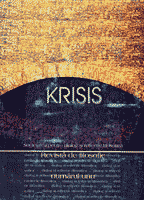Nietzsche sau metafizica excesului
Nietzsche or the Metaphysics of Excess
Author(s): Brânduşa PaladeSubject(s): Philosophy
Published by: Societatea KRISIS pentru Dialog şi Reflecţie Filosofică
Keywords: Nietzsche; Gianni Vattimo; Aristotle;
Summary/Abstract: The most important commitment of traditional metaphysics, developed according to the Aristotelian paradigm, seemed to be that of providing a powerful epistemological and precisely ontological security, which can only be achieved by following his method, with its reduction to the foundation of categories. Against this background, Nietzsche has represented, with great impetuosity, the model of his tragic philosopher, that is the euphoric and shameless satyr, the inverted expression of the original "nothing", showing that this splendid comforting and assuring metaphysics does not hold its own promises. Gianni Vattimo, the Italian exegete of Nietzsche, showed that it is a question of a „self-denial of metaphysics“, which in fact maintains its original situation of uncertainty and violence, that is precisely the conditions it had to overcome. Furthermore, according to Nietzsche, the traditionally followed "technique" of knowledge is wrong, since the subject of knowledge is not a unitary entity, but the meeting of the powers found in antinomy and conflict. Within this ardent plurality the clear forces and the dark forces coexist; however, it is not a question of an Apollinian structure, but of an agreement mysteriously made between active and truly excessive powers. This would be the scandal of Nietzsche's metaphysics, which joyfully preserves all its contradictions, as affirmations of life, outside logic, ethics and speculative reason.
Journal: Revista de Filozofie KRISIS
- Issue Year: 1995
- Issue No: 01
- Page Range: 24-35
- Page Count: 12
- Language: Romanian

